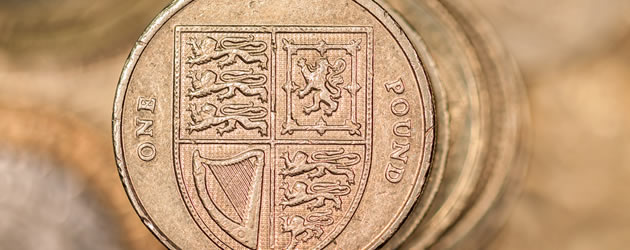The Euro to Pound Sterling (EUR/GBP) exchange rate softened by more than 0.30% on Wednesday as worries over the Greek crisis weakened the single currency and mixed data out of the UK supported the British economy.
The Euro to Pound Sterling (EUR/GBP) exchange rate was trading in the range of 0.7265 to 0.7365
The Euro fell as various commentators said that negotiations between Greece and its creditors remain far from concluded and that the gulf between the two sides remains. An influential member of German Chancellor Angela Merkel’s CDU party cast doubt that a breakthrough will be reached soon.
Michael Fuchs said in an interview with Bloomberg TV that Greece’s latest proposals were not acceptable. Fuchs also criticised Greece’s finance minister Yanis Varoufakis, for telling Germany that they won’t get back all the money loaned to Greece and then asking for more help.
‘The proposal is far from the bailout extension we agreed in February and what we agreed with former Prime Minister Antonis Samaras. Nevertheless, it is Berlin’s wish and will to keep Greece in the Euro area. But they need to come up with serious proposals; and what they have come up with so far is not serious at all,’ Fuchs said.
Also putting pressure on the Euro were doubts that a planned meeting between the leaders of France, Germany and Greece will even take place as the Greek proposals fell short of expectations.
‘If there is no movement, there is no meeting. Germany and France don’t see the point of a meeting for now,’ said an EU official.
UK Industrial Production Beat Forecasts
The Pound Sterling received support from data which showed that industrial production grew at a stronger pace than forecast in April.
According to the London based Office for National Statistics (ONS) industrial production increased by 0.4% on a month-on-month basis in April, a figure that was better than the 0.1% growth expected. On an annual basis, production rose 1.2% from 1.1%. Manufacturing production data however was shown to have softened.
‘Even if industrial production now only held steady in May and June, it would still be 0.8% higher in the second quarter than in the first quarter – the strongest quarterly growth rate since the fourth quarter of 2010 and far in excess of the first quarter’s 0.1% rise,’ said Samuel Tombs, senior UK economist at Capital Economics.
The EUR/GBP exchange rate is likely to experience further movement later in the session due to the release of the latest UK GDP estimate by NIESR.



